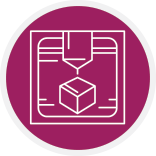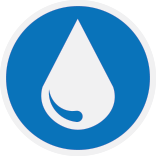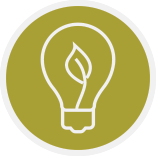As the world strives for decarbonization, the energy supply is in transition and waterpower is in a unique position to support this change. As the oldest form of low carbon energy, waterpower’s role is becoming even more important. The energy transition is demanding more flexibility to support other renewable technologies, upgrading of aging infrastructure that not only support the electricity grid, but are also imperative for integrated water management around flood mitigation, navigation and recreations. There are exciting opportunities around new energy storage facilities, and investment in small waterpower at the distribution level. The challenges are many, but waterpower stations are uniquely suited to tackle these challenges, embedded in communities and ecosystems across Canada.
The Waterpower emphasis aims to prepare students for the unique challenges of this technology and growing opportunities in the industry, drawing on its long history and the many lessons learnt, especially in the domain of sustainable development.
Students who complete the requirements of the emphasis will have it notated on their transcript.
Industry support
The emphasis curriculum has been developed in partnership with the Ontario Waterpower Association (OWA) and delivered in close collaboration with an OWA Advisory Committee. The OWA is a non-profit organization representing the collective interest of the waterpower sector. Their membership includes generators, engineering firms, environmental consultants, legal, project financing and insurance firms, First Nations communities and other organizations.
Program Eligiblity
Graduate students registered in the following MEng programs can specialize in the Waterpower emphasis:
- Department of Civil & Mineral Engineering (CivMin)
- Department of Mechanical & Industrial Engineering (MIE)
You cannot apply to the emphasis directly as a standalone program. If you are a prospective student, you can learn more about applying to our MEng programs here.
Careers
- Graduates who complete the Waterpower emphasis are employed by companies, approval agencies and governments across a range of areas including:
- construction,
- consulting,
- energy distribution companies,
- environmental services,
- manufacturers,
- provincial electrical utilities and related private entities (e.g., Hydro 1, OPG, IESO)
and more.
Some of the roles our graduates secure are:
- Construction manager
- Dam inspection and safety expert
- Decarbonization specialist
- Hydro engineer
- Project engineer
Emphasis Requirements
To complete an emphasis in Waterpower, students must complete four courses:
- APS1410: Waterpower Essentials (formerly CIV1398),
- at least one course from Set A
- and the remainder from Set B as listed below.
Some courses may satisfy the requirements of multiple emphases. Students may double-count a maximum of one course towards the requirements of any two emphases.
Students cannot earn more than two emphases.
Core Course
- APS1410: Waterpower Essentials (formerly CIV1398).
- Does not count towards ELITE emphasis
Set A Courses
- APS1411: Renewal of Waterpower Facilities (formerly under CIVXXXX Special Topics).
- Does not count towards ELITE emphasis.
- Schedule for Winter 2025: Jan 8 - April 9, Wed 3-6pm Online course, synchronous delivery
- CIV550: Water Resources Engineering
Set B Courses
- AER1410HF: Topology Optimisation
- APS1024: Infrastructure Resilience Planning
- APS1032: Introduction to Energy Project Management
- CIV1001: MEng Project
- CIV1252: Infrastructure Renewal (Concrete)
- CIV1303: Water Resource Modelling
- CIV1420H: Soil Properties and Behaviour
- CIV1163: Mechanics of Reinforced Concrete
- CIV1171: Principles of Earthquake Engineering and Seismic Design
- CIV1275: Construction Modelling Methods
- CIV1279: Construction Contract Documents
- CIV1281: Asset Management: Quantitative Tools and Methods
- CIV1399: Special Studies in Civil Engineering: Large Scale Infrastructure and Sustainability
- CIV401: Design of Hydro and Wind Electric Plants
- CIV514: Concrete Technology
- CIV523: Geotechnical Design
- CIV580: Engineering and Management of Large Projects
- ECE520H: Power Electronics
- ECE1049H: Special Topics in Energy Systems Power System Protection
- ECE1059H: Special Topics in Energy Systems: Fundamentals of Power-Flow and Modeling of Electric Power
- ECE1093H: Electrical Insulation Design and Coordination
- ECE1094H: Mathematical Methods in Power Systems
- ENV1001: Environmental Decision Making
- ENV1701: Environmental Law
- ENV1703: Water Resource Management and Policy
- MIE1201: Advanced Fluid Mechanics
- MIE1207HF: Structure of Turbulent Flows
- MIE1210 HS: Computational Fluid Mechanics & Heat Transfer
- MIE1222: Multiphase flow
- MIE1241HF: Energy Management
Questions?
If you have questions about the Waterpower emphasis, please contact contact Sharon Mandair: sharon.mandair@mail.utoronto.ca
For more information, visit the MEng emphases FAQ page »











